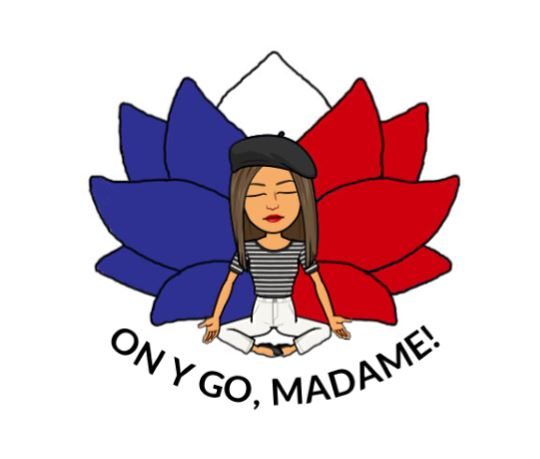As an NEA Foundation Global Learning Fellow, class of 2018, I can vouch for the program. It was the best professional development I’ve ever had, and it culminated in a trip to South Africa! The deadline for the next class is February 4, 2019. The following blog post of mine was reprinted with permission from the NEA Foundation, as they first posted it here.
________________________________________
I applied to become an NEA Foundation Global Learning Fellow while at home, pregnant, and on bed rest. That application was literally the most exertion I had–and was medically allowed–all of that week. I remember thinking that it sounded fascinating. I figured if I was selected it would be an experience that would, at its worst, be like so many other professional development experiences: underwhelming. Conversely, it also had the potential to be incredible.
As it turns out, it was not underwhelming! Oh, joy! But that’s not to say that it was solely the incredible experience I predicted on the opposite end. The feeling that ran through me during the D.C. weekend, the global learning modules, the global learning webinars, and the South African field study was one of…well….pain.
Now, the learning part wasn’t painful. The learning part was the height of “teacher geek” elation! The webinars, modules, and field study were, hands down, the best professional development I have ever experienced. The ideas and experiences presented were perfectly tailored to teachers looking to expand beyond the borders of our classrooms and curriculum, both literally and figuratively. I learned more useful material in this past year than I had in three different graduate programs, and the best part of learning the material was that I was actually excited about it! Like, school-girl giddy!
But then there was the pain.
Very early into the process, I remember thinking “Oh, (expletive)! I’m in trouble.” There were several components to this anguish:
1. My lessons aren’t good enough! (I have to re-write everything!)
2. My goals aren’t good enough! (And speaking of goals, do I even visit them often enough? Is every single lesson focused on my goals?)
3. My curriculum isn’t equitable enough! (And I’m privileged as hell.)
4. My kids aren’t global enough! (No, Erin, just teaching a world language class doesn’t automatically mean your curriculum is global! How very naive of you!)
5. I can’t keep up with the teachers in this group! (Teachers of the Year in their state? National Board Certified Teachers? Authors? Accolades and recognitions from people in high places? I’m screwed.)
Painful. That’s really the only way to describe those revelations. It was at that point, however, that I realized we all had a choice: we could go through the steps and become marginally better, or we could let the process challenge us, transform us, and never leave us the same people or educators we were before. The opportunity was there for more to get on board, if I wanted it.
Like training for a race, I recognized that the fun did, indeed, come first. The pain was second and, arguably, the longest component of the process. But I also knew that the pride of pushing through and finishing was an accomplishment worth working for. I chose to embrace the pain because I knew that it would lead to something better for me. More importantly, I knew it would lead to something better for my students.
It was a blow to my ego to realize my lessons weren’t good enough, and it was physically and mentally painful to realize I had hours, weeks, and months of curriculum re-writing to tackle. It was frustrating to see that my goals didn’t lie at the intersection of my global values and the high level the students can truly accomplish, and it was gut-wrenching to see that I was woefully inadequate in terms of my ability to put equity issues in action. It was a tough pill to swallow that teaching a world language does not automatically equate to a globally-centered curriculum, and it would certainly be easier to just do my job and not strive to be at the top of my field. But if I sucked it up–if I put aside ego and looked forward to possibility–the benefits to my students would be immeasurable.
I realized I CAN make my curriculum better, and my students deserve the absolute best, not just good. More than that, the world deserves me to make that change for our kids. While it’s painful to take repeated hits to the ego, to be continually aware of what I don’t know, and to see a massive mountain of work ahead of me, it’s simultaneously exciting to be a part of this change! It’s inspiring to see kids thrive as they’re becoming more globally competent, and to know that I’m part of that process. I’ve been reading books on social justice like crazy, I’m rewriting two entire classes of curriculum this year (the other two are on deck for next year), and I’m now in the middle of the National Board Certification process. Pain, somehow, became enjoyable.
In doing research on equity issues as a part of my global education journey, I came across this quote from Malcolm X which has stuck with me in a profound way: “We can’t teach what we don’t know, and we can’t lead where we won’t go.” The NEA Foundation Global Education Fellowship has helped me learn what I didn’t before know, as well as put me on the right path for continuing to learn even more and, hopefully, to lead.
Without this fellowship opportunity, I would’ve been more comfortable–ignorance can be blissful. But with this opportunity, I have become better, and I am deeply grateful for the wonderful pain that continues to make each day I spend with kids more exciting and more meaningful.




